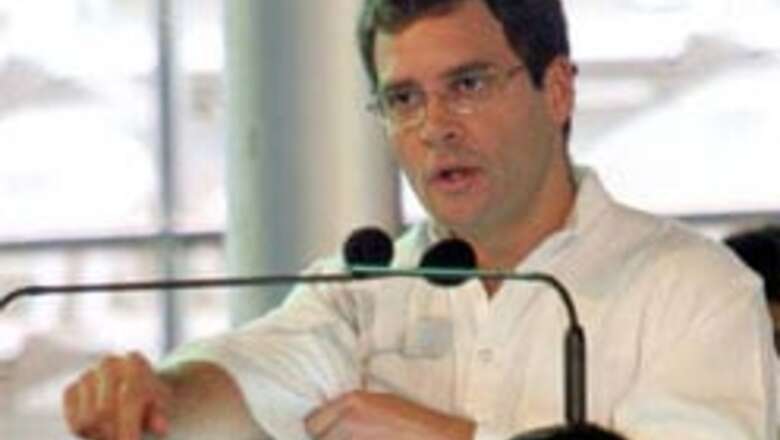
views
United Nations: India seeks a fresh assessment of nuclear energy as a clean and safe source of energy to give developing countries the freedom to choose policies that best suit their energy needs, Congress MP Rahul Gandhi said at the UN.
"Developing countries must have the policy space to address their energy needs in light of their individual circumstances," Gandhi said participating in a UN committee debate on Sustainable Development on Wednesday.
All significant energy sources - whether conventional or advanced fossil fuels based, or renewables, or civilian nuclear power - must remain in policy reckoning to address energy needs for sustainable development, he said. "In particular, there needs to be a fresh assessment of nuclear energy, as a clean and safe source of energy," he said.
Many developing countries, including India, still rely on traditional sources of energy for a significant part of their energy needs. However, traditional technologies are inefficient, insufficiently versatile and have major health, gender, and environmental impacts, Gandhi said.
"Energy is critical to development. In developing countries, a rapid increase in energy use per capita is imperative to realising national development goals and Millennium Development Goals," he said.
Noting that at the Johannesburg Summit the international community had collectively agreed to significantly reduce the current loss of biological diversity by 2010, Gandhi stressed the importance of an international regime to protect and safeguard the equitable sharing of benefits arising from the use of genetic resources and traditional knowledge.
The international community has not lived up to its commitments for technology transfer, he said, putting critical technologies beyond the reach of developing countries because of prohibitive costs under the existing Intellectual Property Rights (IPRs) regime.
"We need to revisit the IPRs regime to ensure that technologies necessary for pursuing the global imperative of sustainable development are placed in the limited public domain and made accessible to developing countries," Gandhi said, asserting that these regimes must represent the tradeoffs between innovator incentives and wider human societal imperatives.
PAGE_BREAK
The international community should also explore the possibility of establishing a Clean Technology Acquisition Fund to enable developing countries to access critical technologies, he said, as it would encourage the use of clean technologies, and significantly impact the realisation of sustainable development goals.
As a result of globalisation, external factors contribute to the success or failure of developing countries to a greater extent than before, Gandhi said, noting that developing countries are caught between intellectual property rights and trade regimes, as well as the conditionalities imposed by the World Bank and IMF, all of which erode their autonomy and flexibility.
However, these countries need that autonomy and flexibility to evolve policies and strategies for economic growth and sustainable development, which is so critical to eradicating poverty and achieving Millennium Development Goals, he said.
Expressing concern at the current impasse in the Doha round of trade negotiations, Gandhi noted that when agriculture was brought into multilateral trade negotiations, developing countries had clearly been given to understand that trade distorting agriculture subsidies would be phased out in a definite timeframe.
However, gains expected from agricultural reform by developed countries continue to elude developing countries, he said.
"Minimising the vulnerability of poor farmers must be our collective priority. Reducing agricultural tariffs and subsidies is not enough. There must be exceptions to allow developing countries more space to pursue their pro-development strategies and policies aimed at protecting their poor," Gandhi said.
Special and differential treatment for developing countries, to enable them to meet food security, livelihood security and rural development needs, remains a categorical imperative, he said.




















Comments
0 comment